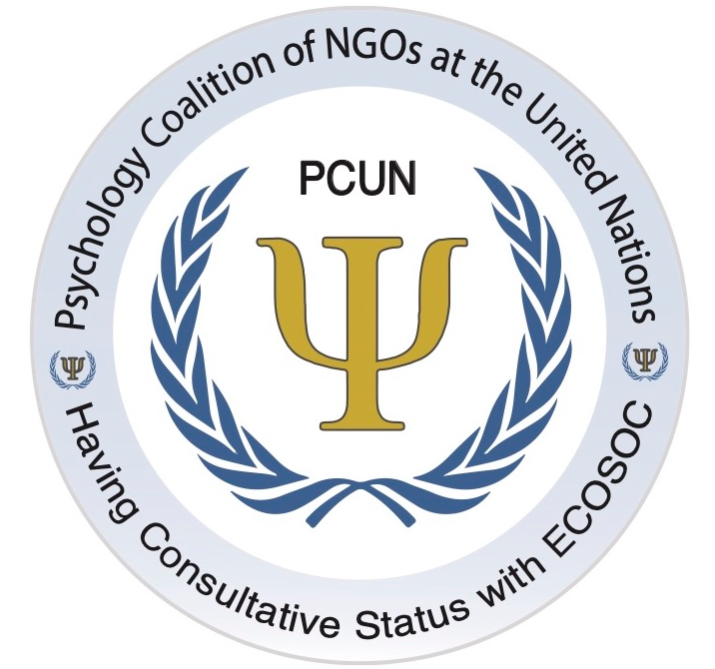Why PCUN?
The field of psychology addresses a wide range of topics including but not limited to decision-making, learning, motivation, leadership, prejudice, poverty, violence, decent work, gender equality, environmental sustainability, happiness, and well-being. Governments, UN agencies, and civil society organizations can better accomplish their goals by understanding the psychological factors underlying the challenges they work to address.
To facilitate this understanding, the Psychology Coalition at the United Nations (PCUN) was formed. The PCUN consists of a variety of national and international psychology organizations. PCUN members represent many different areas of psychology, including clinical, developmental, social, counseling, school, educational, environmental, and industrial-organizational psychology.
What Does PCUN Do?
Members of the PCUN participate in a variety of NGO committees such as the committees on:
- Ageing
- Human Rights
- Migration
- Population and Development
- Social Development
- Status of Women
PCUN members also work with UN member states, as well as UN agencies such as UNESCO, the International Labour Organization, and the UNDP.
To help inform solutions to pressing global problems, the PCUN develops statements offering an evidence-based position on a range of issue relevant to the UN and its constituents. Each statement draws from psychology-related research and intervention strategies to expand readers’ understanding of complex issues, providing culturally sensitive positions and recommendations based on accepted findings from the science of psychology. These statements are available for download from the PCUN web site.
